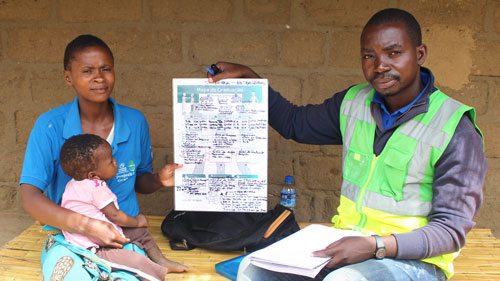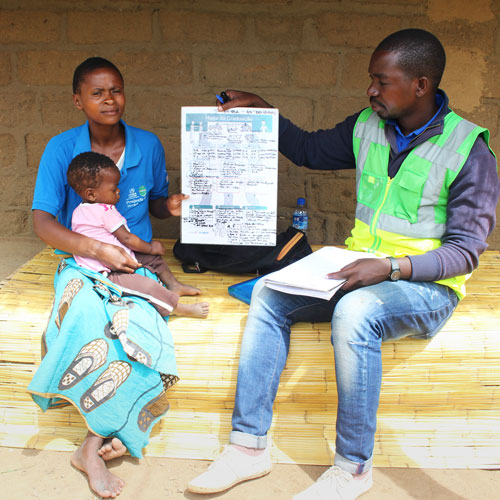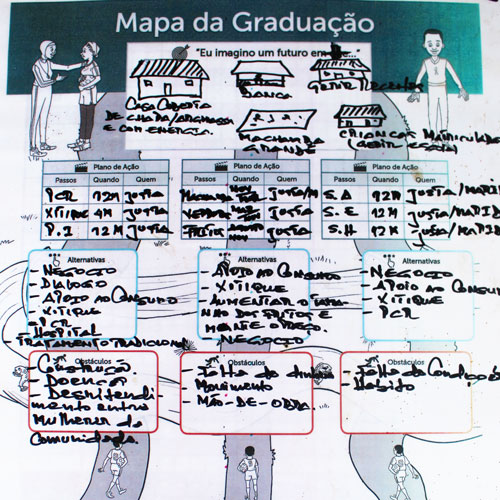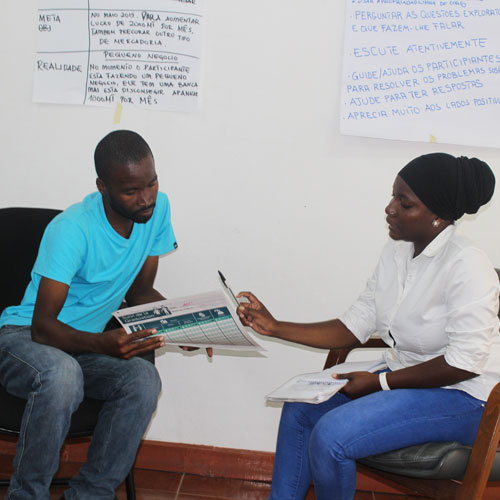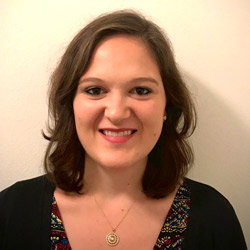The Graduation Approach is not a cookie-cutter, one-size-fits-all intervention. To implement the Graduation Approach successfully, we must embrace constant learning, adaptation, and improvement. To do this, Trickle Up’s Refugee Affairs Program has begun leading Learning Missions to observe and strengthen Graduation in different contexts affected by displacement.
Trickle Up has supported ten different Graduation Approach pilots managed by The UN Refugee Agency (UNHCR) by providing adapted technical assistance throughout program design and implementation.
Recognizing the need to adapt and strengthen programs throughout implementation, the Refugees Affairs team began two-week Learning Missions in 2019. In the first week, Trickle Up staff focus on observation and information gathering to learn about the status of implementation, including successes, challenges, and areas where additional support is needed. In the second week, staff provide targeted technical assistance to the team based on those learnings.
In March 2019, a small team spent two weeks in Nampula, Mozambique with UNHCR staff and their local implementing partner Kulima. Mission activities included interviews with UNHCR and Kulima staff, one-on-one conversations with participants, and focus group discussions with participants regarding their experiences in the Graduation program and savings groups.
Trickle Up trained coaches in Mozambique during the early stages of the program using methods and tools we developed specifically for use in a refugee camp setting. During the Learning Mission, we shadowed these coaches by sitting-in on their sessions with participants, such as the one between Justa and her coach Eurico. Together, they looked at the goals Justa had set for herself and discussed her progress. Justa described her struggle finding money to pay for labor to plow her field. Referring to her Graduation Map—one of the tools developed by Trickle Up to help participants plan, track, and achieve their goals—Eurico helped her brainstorm potential solutions. Ultimately, Justa decided she could overcome this challenge by asking some friends and family members to help her plow.
During the second week of the Learning Mission, Trickle Up, UNHCR, and Kulima jointly prioritized coaching as one of the key topics where Trickle Up would provide additional technical support so Trickle Up organized a refresher training with the coaches. During the training, they discussed the role of coaches, reviewed the coaching guide and tools, and strengthened coaches’ facilitation skills, emphasizing the following coaching skills and techniques:
- Preparation: When coaches are very familiar with their tools, the topics of discussion, and participant progress, they will be better able to lead a fluid conversation and provide the highest level of support.
- Active listening: Active listening, shown by both verbal and non-verbal signs, encourages participants to share and helps a coach better understand the participant’s situation or perspective.
- Support for participant problem-solving: Coaching is different from training or case management. To build increased self-reliance, the role of coaches is not to provide advice, but to help participants come up with sustainable solutions on their own. Coaches ask exploratory and probing questions in order to have the participant uncover appropriate options for tackling obstacles.
- Self-assessment: Coaches can improve more when they know their strengths and weaknesses. Using a structured coaching supervision tool allows coaches to think about what skills they have and where they can improve.
Through the refresher training, the Trickle Up team was able to learn more about the common challenges coaches face and how to provide them with the best support going forward. As coaches are the backbone of the Graduation Approach, continuously building their capacity helps ensure participants receive the necessary support to further build their self-reliance so that they can continue working towards their goals well after ‘Graduating’ from the program. From the coaches’ perspective, this training was key to their success in this role and they have requested continued refreshers so they can be the strongest coaches possible.

